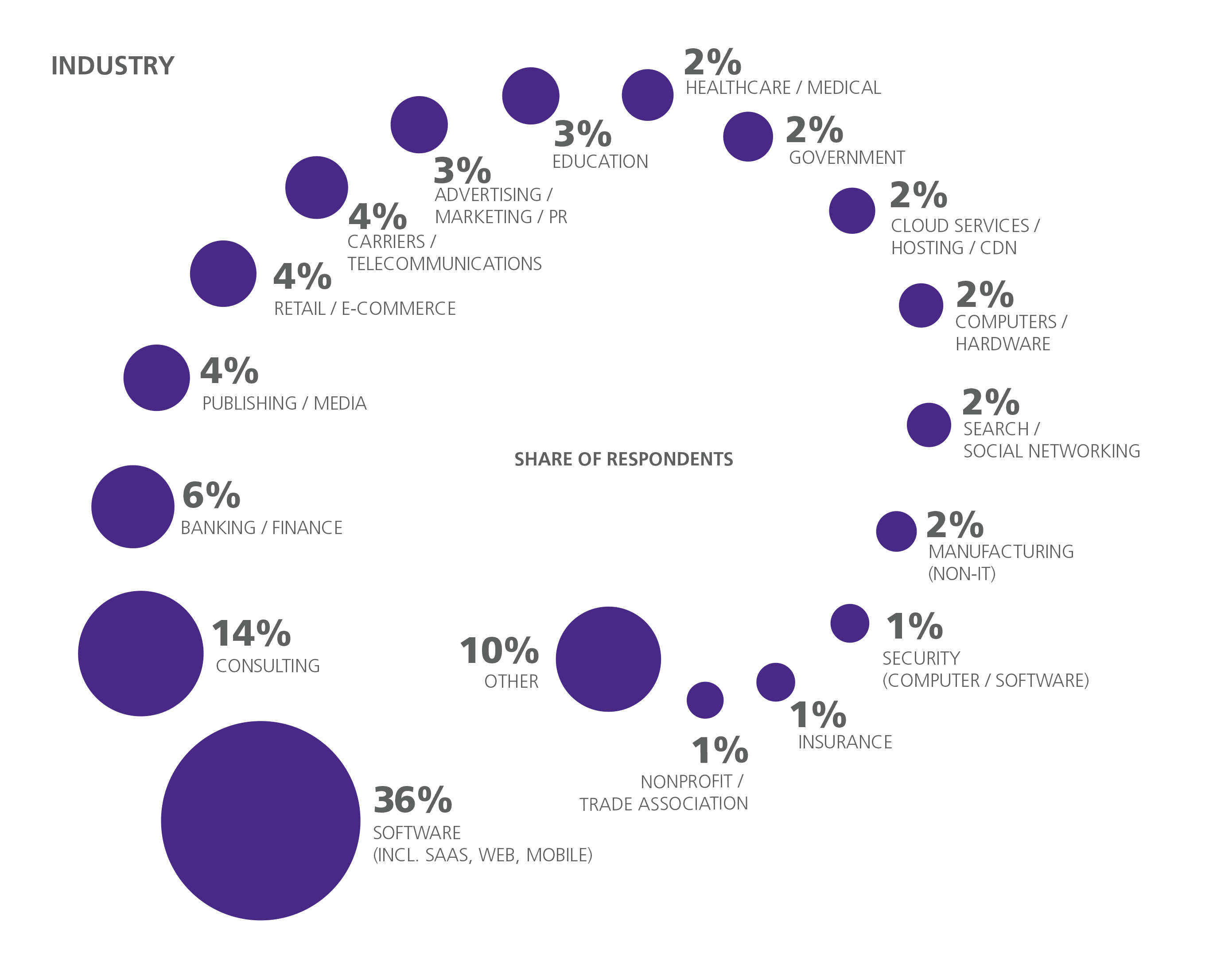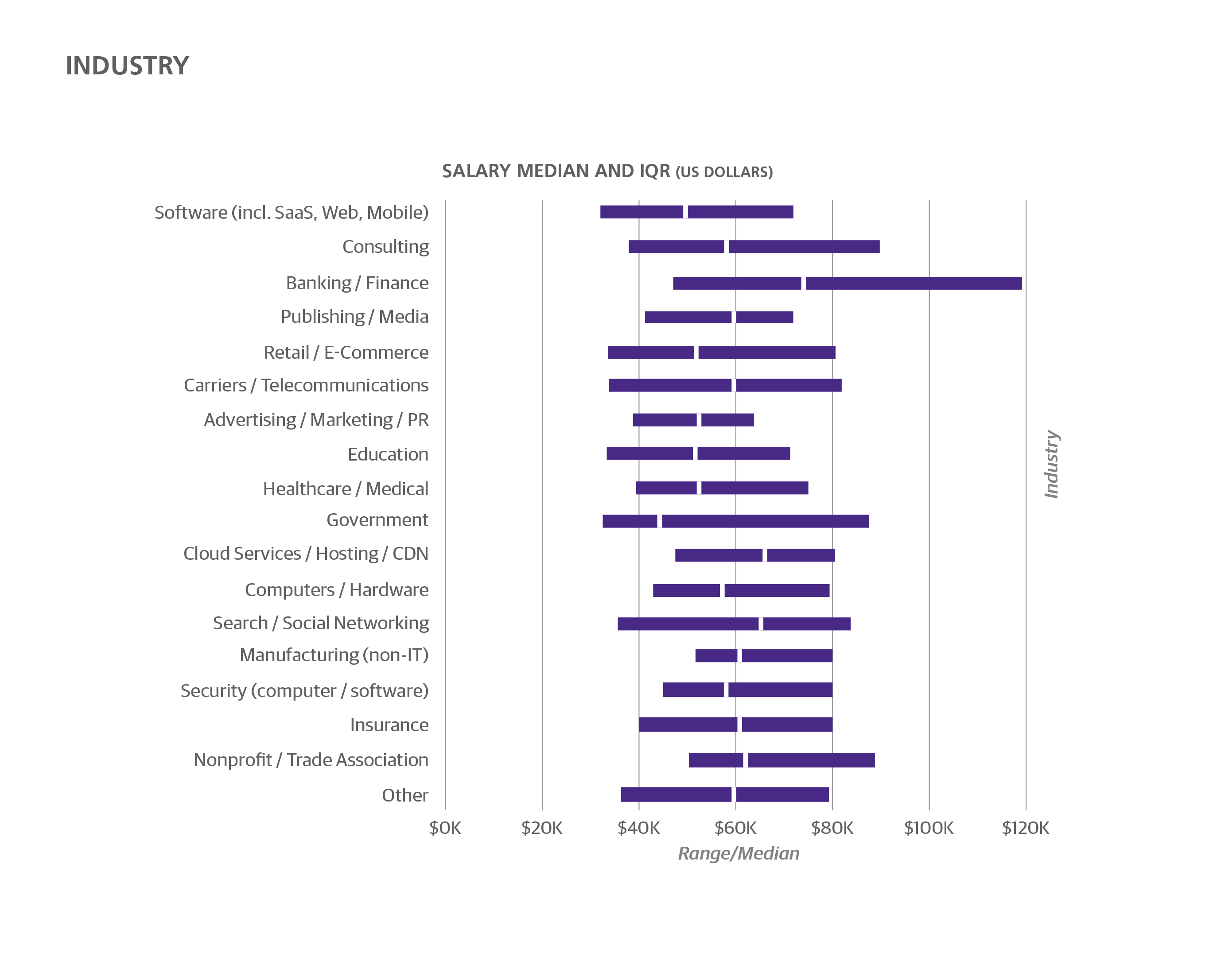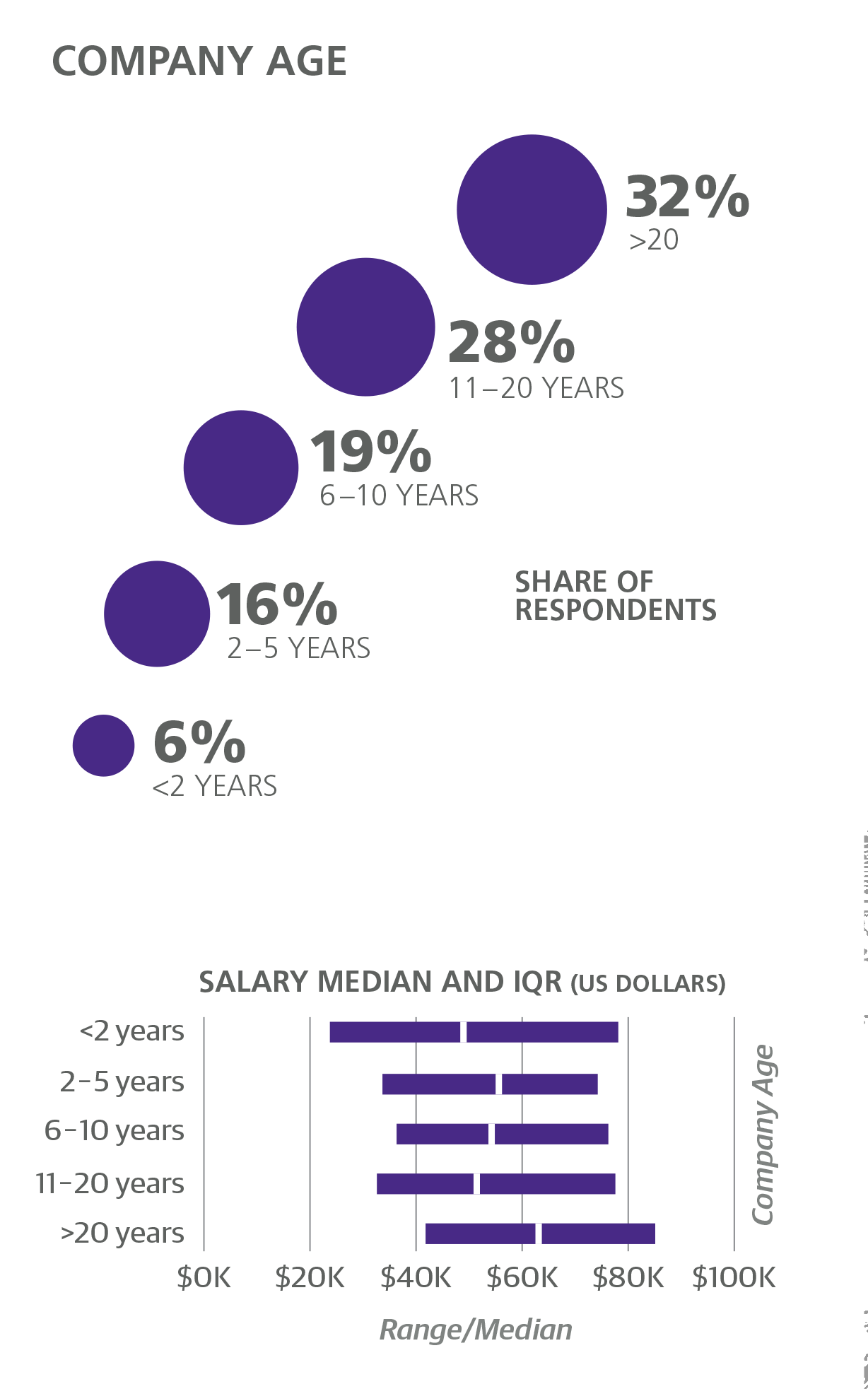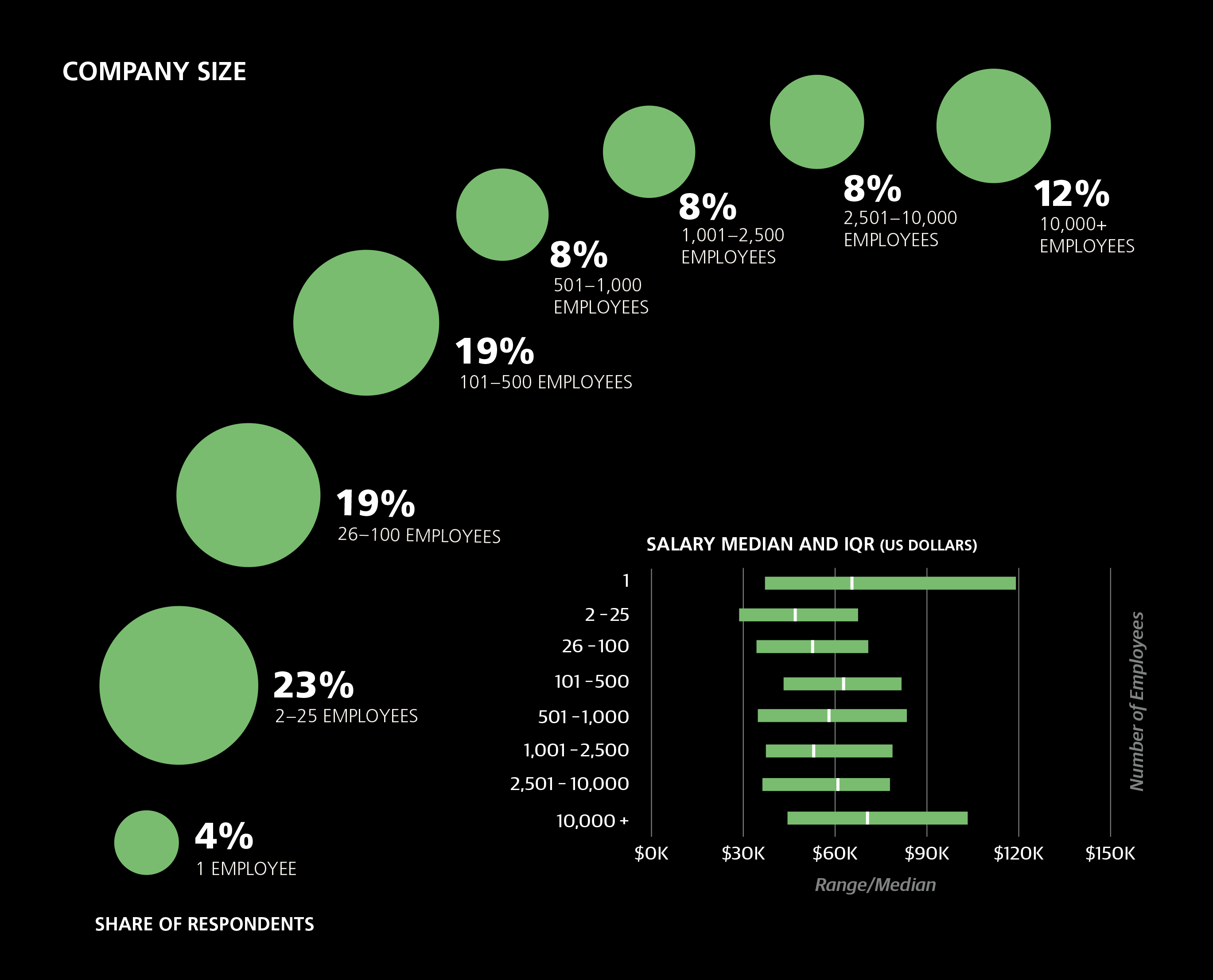Company Types
THE SURVEY INCLUDED QUESTIONS ABOUT INDUSTRY, COMPANY SIZE, AND COMPANY AGE. Software was the most well-represented industry (36%, rising to 41% when including cloud services, security, and search/social networking), followed by consulting (14%), and banking/ finance (6%). Banking/finance respondents had the highest median salary, $75k, and a model coefficient of +$16,260. The only industry with a negative coefficient was education (–$6,438).
IT consulting (but not non-IT consulting) had a positive coefficient (+$8,419), and combined with the +$8,832 coefficient for self-employment (i.e., company size equals one) paints a favorable picture of solo consulting (2% of the sample were self-employed consultants). But it should be noted that these coefficients may simply be offsetting further coefficients such as the one for team size, which favors larger teams.
Salary distinctions among companies by age (e.g., startups versus mature companies) were subtle enough to be ignored by the model.
Very large companies (over 10,000 employees) made up 12% of the sample and had a median salary of $70 and a coefficient of +$5,156. Old companies (over 20 years old) made up 32% of the sample, and although respondents from these companies had a higher median salary ($63k) than respondents from younger companies, company age over 20 years did not have a coefficient in the model; in other words, the salary discrepancy of this group is likely due to other variables. While company size and age correlate (larger companies tend to be older), the exceptions to this pattern highlight why the previously listed coefficients were chosen: respondents from small, old companies had a median salary of $47k (14% of the sample).




Get 2016 European Software Development Salary Survey now with the O’Reilly learning platform.
O’Reilly members experience books, live events, courses curated by job role, and more from O’Reilly and nearly 200 top publishers.

